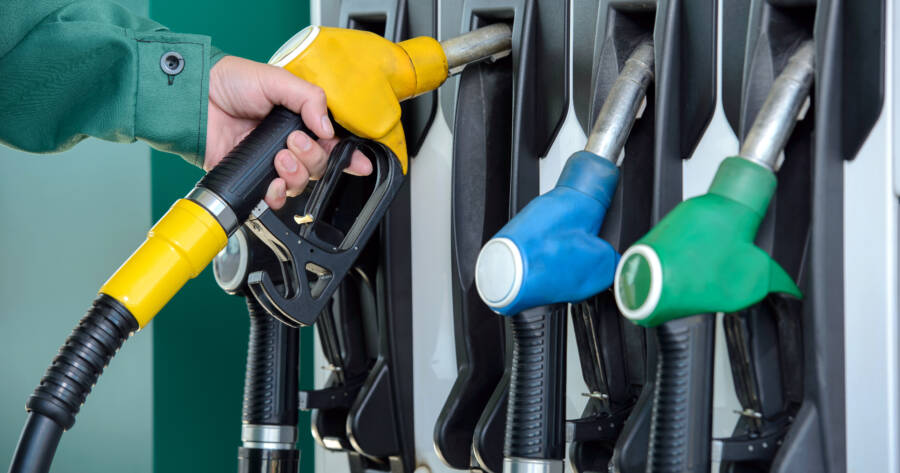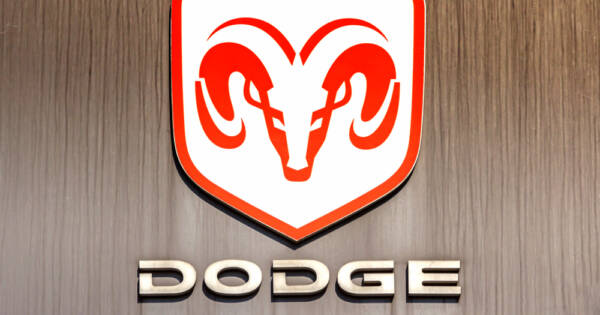If you’ve only ever driven a traditional gas vehicle, you may be wondering: what’s the fuss with diesel? Diesel is, to put is extremely simply, just another form of gasoline for your car. So what are the main differences? Which one is better? If you’re shopping for a vehicle with a diesel engine option, or if you’re just mildly curious, the differences between gas and diesel are pretty significant!
The Inventions of Gas Engines
Before we get into the modern discussions on gas and diesel, we need a short history lesson. The gasoline engine was invented back in 1876 by Nikolaus August Otto. While this invention led directly to early gas-powered automobiles, it wasn’t particularly efficient. Only about 10% of the burnt fuel was used to power the vehicle, while the rest simply produced heat as a byproduct.
The technology has obviously gotten much better over time. However, that first gasoline engine was still a major point in history.
The Invention of Diesel Engines
It wasn’t long before someone tried to improve upon Otto’s early designs. Just two years later, a high schooler named Rudolph Diesel learned about the inefficiencies of a gas engine. He immediately started working on a more efficient solution. It took him more than a decade, but in 1892 he patented what was then known as the “combustion power engine.” These days, we would simply refer to it as a diesel engine.
Although both engines operate in a similar manner, there are key differences that set them apart. These differences can cause vehicles to have more (or less) horsepower, torque, and overall fuel efficiency.
Engine Operations
Both gasoline and diesel engines use a process known as internal combustion. (You may have seen the acronym ICE used when discussing engines — it stands for internal combustion engine.) The ICE uses a series of rapid explosions within the engine, which turns the fuel into energy, which in turn powers the engine and propels the vehicle. However, these explosions aren’t identical in gas and diesel engines.
In a gas engine, the pistons compress air which then mixes with the fuel. Then a spark plug is used to ignite this mixture of fuel and air. In a diesel engine, however, the air is compressed first. This compression causes the air to heat up, meaning it combusts with the diesel fuel without the need of a spark plug.
Fuel Injections
The process of injecting fuel into the engine happens differently in gasoline and diesel engines.
In a gas engine, the fuel can be injected via either a port injection system or a carburetor. The former injects air into the fuel right before the intake stroke, while the latter mixes the air and fuel together first, and then sends it into the cylinder for compression.
A diesel engine does things a little differently. The fuel is injected directly into the cylinder. It’s a crucial process, so diesel injectors have become a fairly complicated engine component. They need to deliver the fuel as a fine mist in order for the engine to function properly. Even today, engineers continue to refine and improve this process.
Power Output
When it comes to cars, “power” can actually mean a couple different things. First there is horsepower, which is measure of overall power the engine can produce. There is also torque, which dictates how much force the engine puts on the driveline to produce acceleration. Without getting too complicated, a vehicle with lots of horsepower but not much torque will have plenty of power, but will be slow to get moving. Conversely, a car with plenty of torque but not a lot of horsepower will jump off the line quickly — but that’s about it.
As a general rule, diesel engines tend to have higher torque, but less overall horsepower. This is why performance sports cars generally use gas engines, to maximize horsepower and raw speed. Heavy vehicles like buses and farm or construction equipment are more likely to use diesel. They need the extra torque to move heavy loads (or just the massive weight of the vehicle itself).
Efficiency
Diesel fuel has a higher energy density than gasoline, meaning it creates more energy than gasoline. Typically, diesel engines get a bit better mileage than equivalent gasoline engines. Due to its cost and efficiency, diesel fuel is used to power large, industrial vehicles such as trucks, boats, school and city buses, trains, cranes and farm equipment.
Many large power generators also run on diesel rather than gasoline. However, gasoline engines have been found to be better for consumer vehicles as they are quieter and emit less soot than diesel engines.
Physical Differences
Diesel fuel is heavier and oilier than gasoline. Diesel also evaporates more slowly than gasoline. Some people refer to diesel fuel as “diesel oil” because it is so slick and oily.
It takes less refining to create diesel fuel, which is why it has historically been cheaper than gasoline. However, since 2000, demand for diesel has risen due to increased industrialization and construction in China and other developing countries.
Price
At the pumps, diesel usually costs more than gas – especially if you use the lowest grade gasoline that’s available. As of 2018, the national average for a gallon of gasoline in the U.S. was $2.74, whereas diesel averaged $0.44 more. The same statistics show that, on average, diesel fuel prices in America have been higher than regular grade gasoline prices since 2004.
The price of diesel tends to be higher for many reasons, including strong foreign demand (more European vehicles run on diesel), high taxes (the U.S. federal tax on diesel fuel is six cents higher than gasoline per gallon), and seasonality (when demand for heating oil rises in the winter, diesel prices tend to rise too).
Emission Concerns
In terms of the environment, diesel engines have traditionally emitted less carbon dioxide than gasoline engines. However, improvements made to gasoline fuel and standard gasoline engines over the past decade mean that, today, there is really no difference between the two types of fuel when it comes to carbon dioxide emissions. Still, many car manufacturers charge more for diesel vehicles under the claim that they are better for the environment.
Cars do typically travel further on a liter of diesel than on a liter of gasoline. So your mpg will improve, but diesel produces more soot than gasoline. The bottom line is that most analysts today find diesel and gasoline engines about the same in terms of their environmental impacts.
Reliability
Diesel engines are, in general, a bit more simple than gasoline engines. They don’t require spark plugs or the same electrical system as gasoline engines. That means there are fewer parts to wear out or malfunction. Typically, a diesel engine can last longer than a gas engine before it needs any sort of major repairs or service.
An added bonus of the diesel engine is that repairs are often cheaper, when they are eventually needed. Once again, having fewer and less complex parts means service to a diesel engine costs less and can be completed quicker.
The Bottom Line
Now that you understand the main differences between a gasoline engine and a diesel one, you can make an informed decision the next time you’re car shopping. If you need a heavy duty work truck, with plans to tow or haul thousands of pounds, then a diesel might be the best option.
On the other hand, if you’re just commuting to work and back in a crossover SUV, there’s not much need for a diesel engine. It won’t save you any real money and is basically the same as a gas engine when it comes to environmental concerns. If you’re wanting to go green, skip fuel based engines entirely and opt for an electric vehicle.




